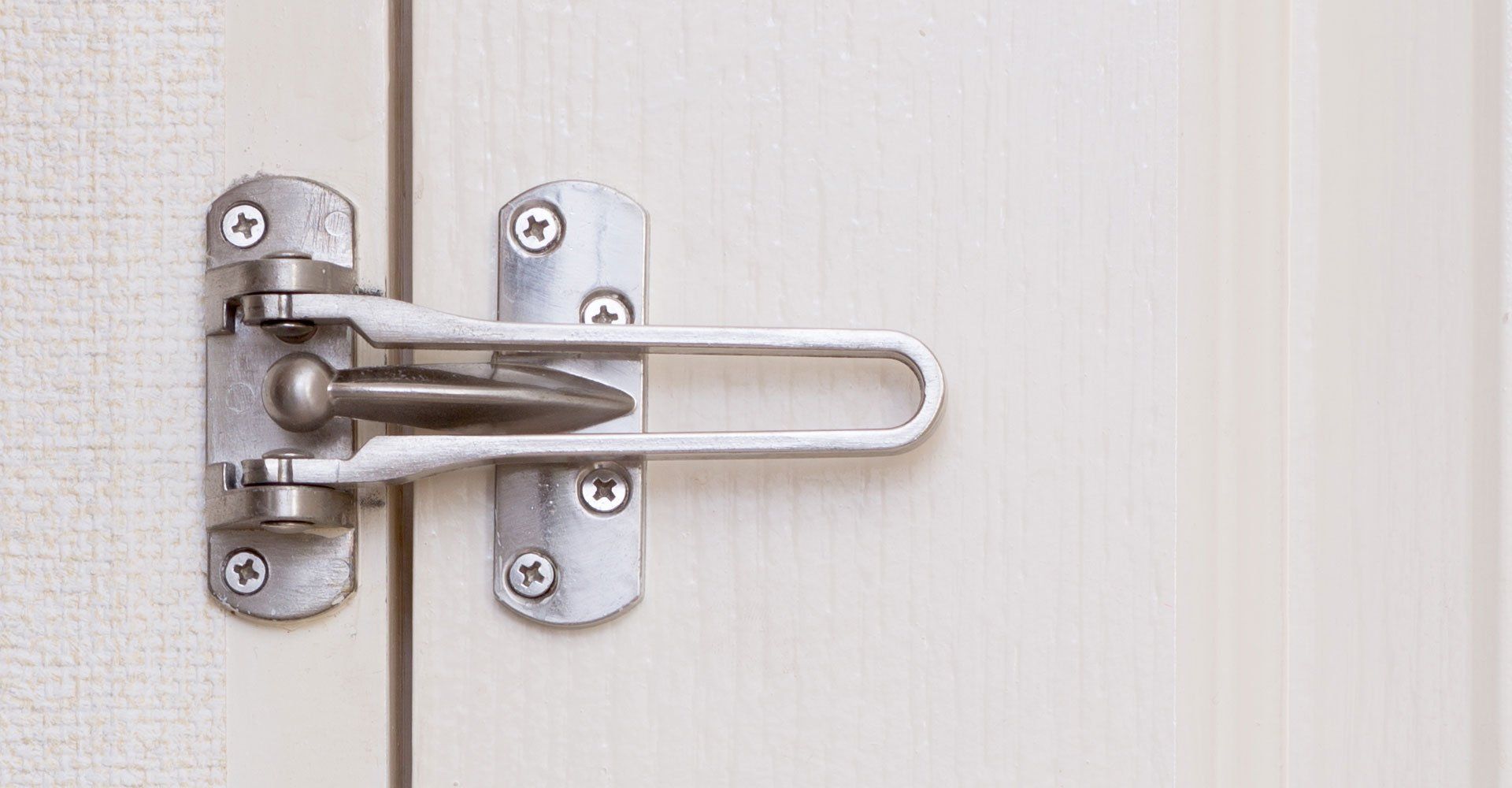Blog

Heading off to college can be a frightening experience in and of itself. However, choosing to live off campus can certainly add to the fear and challenge. There are a number of advantages to students living off campus, which can contribute to a positive, healthy experience. Here at Storrs Student Living we want to share with you some of the pros and cons that come with choosing to live off campus.

For college students who find themselves living away from home for the first time, the change may be challenging. Making your college apartment feel like home does not have to be one of the many challenges faced. Decorating your new college living space does not have to break the bank, nor does it have to be stressful. Here are some simple tips on how to decorate your college apartment to look and feel at home.

Students who rent when away at college, oftentimes miss the look and feel of home. Customizing your student apartment to feel a bit more like home is a surefire way of helping you feel more comfortable and adjust to your new life away from home. Granted, you can’t change the color of the walls, the flooring or the cabinets, but there are a number of ways you can still make your new living space feel a whole lot more like home.

One of the best ways to make your new apartment feel like home is to decorate your space exactly how you want it! This is your chance to be creative and bring comfort to your space while being surrounded by decor that feels right to you. Whether you think so or not - you have a style. Now, it's time to create the vision that captures you ! Priorities The first thing you will want to think about when designing your space are determining priorities. Is an office space for a desk and bookshelf a requirement? Do you need a space to workout at home? Are you a movie lover who needs room for an at-home projector? Or maybe you’re an entertainer in need of a table fit to host dinner parties! Understanding your typical activities and tailoring your space to your hobbies is a necessity for both functionality and happiness. Regardless of the size of your space, there are many creative ways to decorate your apartment to make daily activities easier and more enjoyable. Color Incorporating different colors into your space is important to create the feel of home. Bringing light into your apartment with the right colors can change the entire feel of a room. If you're someone who enjoys vibrant hues, then pick a few complimentary colors to spice things up. Or if you enjoy more earth tones, then pair some calming colors together. Although painting isn’t something typically done with renting, you can bring these colors to life with furniture, wall decor, accent pillows and throws. Lamps and soft lighting can also add a warm glow to your space for when the “overhead” light feels a bit too much. Shape Apartments tend to feel boxy, so it's always a good idea to add some different shapes. Tables, mirrors, picture frames, and rugs are just a few easy ways to incorporate some fun shapes into your space and give it more dimension. Be creative- you don't have to stick to one shape. Greenery Plants are always a nice touch to every room and even have benefits for your health and well-being. A small palm tree in the common area can really bring a room together. For your bedroom, adding some succulent plants can be calming and are low-maintenance. Most succulents do not require a lot of light which is especially convenient if you prefer to keep your bedroom dark. A few herb plants in the kitchen can even be helpful for cooking and bring in wonderful aromas or consider a small garden on the front yard. If you are going to incorporate any greenery into your space, always be mindful if you have pets and be sure to do some research to ensure the plant is safe for your animals to be around. If you aren’t interested in the upkeep of house plants, you can also substitute for artificial plants to achieve the same look. Types of Interior Design There are so many different types of design that you could bring to your space. Below is a list of design types that will help you discover what style feels right for you. So go explore with these keywords and start making a list of things you’ll want to incorporate into your home! Transitional Traditional Modern Eclectic Contemporary Minimalist Mid-century Modern Bohemian Modern Farmhouse Shabby Chic Coastal Hollywood Glam Southwestern Rustic Industrial French Country Scandinavian Mediterranean Art Deco Asian Zen

Having to move into a new space can seem overwhelming. For many students it will be their first time living on their own. On top of the new location and adjusting to a new school, you will also have to learn to live with a roommate. This can be quite the adjustment, that is why we have typed up a list of tips to take into account when picking out and living with a roommate. Their school schedule vs their roomates' school schedule Something most students overlook when choosing a roommate, is that roommate’s schedule. If your roommate has many morning classes, they will most likely go to bed early and may prefer to have you do the same. If you like to stay up late this may conflict with your preference. The last thing you are going to want to do is interfere with your roommate’s sleep schedule or their ability to function properly in class, and the same thing goes for you. By comparing schedules and sleep preference early you can avoid any interference. Cleanliness habits and preferences Some individuals feel more comfortable around clutter, while others can’t find peace unless everything is properly organized and neat. When it comes to cleaning, some people prefer to get their cleaning done in one day, while others prefer to tidy up a little bit each day. You can also divide chores by preference, have one roommate vacuum while the other mops. Adversely you can alternate chores and have one roommate responsible for certain tasks and then have the other individual perform those tasks the following week. Set boundaries about having people over or other people staying over Individuals may not approve of having people over when they are not home, and some may not want company over even when they are there. Some people are in relationships and may want to have their significant other stay over. Sometimes a roommate will invite their friends over to spend the night. If you are uncomfortable, or plan on having company over it is important that you discuss this with someone you plan on rooming with prior to living together. Establishing and agreeing on boundaries early is key. What belongings can be shared between everyone and if not, designate areas for personal belongings People may or may not be comfortable letting their roommates use their belongings. If one roommate brings a printer, can the other make use of it? If you’d prefer not to share, be sure to have certain private areas set aside for each roommate to store their personal belongings. Asking these questions early can help you prevent any confusion later on. Clearly assign who is bringing what on move-in day (furniture, small appliances, toiletries, etc) Something people forget to do is coordinate who is bringing what. It can be frustrating to move large objects, such as a sofa for example, just to find out your roommate already brought one. Plus this will also help prevent you and your roommate from forgetting anything you may need. Coordination can help either one of you from over spending, there’s no need for one of you to buy a microwave if either one of you has a spare. You can also avoid having to go out shopping for any missed items on your first day of living together when you determine what to bring and who is bringing what. Your Trusted UConn Apartment Supplier By determining the type of living condition you would be most comfortable with and bringing them up with any potential roommates, you can make finding the right roommate an easier process. It will help prevent any future misunderstandings or arguments. If you are interested in any other things to consider when finding a roommate, or have any questions about our affordable and high quality off campus student living accommodations, feel free to give one of our team members a call today at 203-941-6005.

Many kids, much like their very own parents, look forward to their college years so they can go out into the world, live someplace different, meet lots of new and exciting friends and have the opportunity to experience a variety of new things. For many college-bound children the thought of immersing themselves into a different and more exciting environment is a very important component of their college lives. Children Can Branch Out and Expand Their Horizons When your child decides they would rather go away to college and live in their own rental apartment or house, there are a number of challenges that come into play. One of the first and most important tasks at hand is finding a location near to college that is not only practical and close but safe and protected as well. Most of us agree that leaving the ‘nest’ and heading out to live on your own is a part of healthy development for our children. Doing so gives college students an opportunity to experience an entirely different type of life while finding out what it is they actually want to do with their lives as well as figuring out who they really are. Getting Started When you begin your quest to find the ideal rental apartment or home, your first and most foremost focus should be on the ‘where’ and not the ‘which one’ or the ‘what’. With that said, finding a safe and protected town or city to live in is critical to your new life and is something that every parent needs to give attention to. Storrs, which is home to Connecticut’s beloved Huskies, has been recognized as one of the safest places in all of the country to live. It is located 50 miles from the ocean and has no nearby rivers that can cause flooding and has never fallen prey to a natural disaster. For college bound students headed to UConn, living in Storrs is indeed a safe choice as are the neighboring towns of Mansfield, Ashford and Willington. Manchester, which is nearly a 30-minute drive to the UConn Storrs campus and is more city like living rather than the rural living in those towns mentioned above, has also been billed as a safe location to live. UConn Offers Off-Campus Housing Services to Students Students who have elected and been accepted at UConn of Storrs and need to locate a safe off campus rental apartment or house can take advantage of UConn’s off-campus housing services. There are a number of very safe and highly visible locations nearby to the campus where students can take up residence without safety or other concerns. You may want to perform your due diligence on crime ratings in any of the locations you are interested in. You can check out the overall safety of specific towns nearby the UConn Storrs Campus by visiting Connecticut Crime Statistics . Always Safety First As parents, we are all concerned about the safety and well-being of our children and that includes our young adult sons and daughters who are now college bound and setting out to learn about life’s adventures on their own. For those students who choose not to live on campus, where Mom and Dad are sure to feel a whole lot more secure, but rather want to experience living in their own apartment or rental house, a safe and well protected location should be everyone’s number one priority. We take pride in the safety, happiness and well-being of all our valued students at all times. We offer off campus living services that aid students and their parents in finding the ideal location and town to live in as well as the ideal apartment or rental home that satisfies the individual needs of students. If you have any questions or concerns, or are in need of assistance in finding off-campus living arrangements, please reach contact us .

A milestone in and of itself, college presents with a number of struggles and everyday challenges for our college-bound children, which is why we, as parents, want to do whatever is possible to minimize the complex tasks our young adult children are faced with. When our kids head off to college, they take with them their favorite furnishings, every piece of electronics they own and, of course, their every article of clothing. They venture over to the nearest department store with Mom and Dad to purchase all those apartment necessities and then some. Though furnishing their dorm, new college apartment or new rental home is critical to their next four years and attributes to their comfort and safety, insuring all those old and new belongings is an even more critical task to undertake. That’s where every Mom and Dad comes in. Renter’s Insurance for Your College Young Adult Whether your child is renting a home with a group of college buddies, or renting an apartment on their own, it is critical that your child’s possessions are insured to safeguard them should there be a fire, theft, water loss or the likes. If your child is living in a dorm here at UConn, more thank likely your own homeowner’s policy can and will cover their belongings and possessions, but is dependent upon the type of policy you have and the insurance company that actually wrote the policy. Many homeowner policies will cover life in the dorm, but they vary desperately as to what coverage they will actually provide for students who are now living on their own away from home. But for the college bound student who elects to rent a home or apartment, it is a very good idea to purchase a separate policy from your typical homeowner’s policy. You should invest in a Renters policy and be sure the Renters policy of choice provides the adequate coverage you want and need for your college bound student. Coverage You Want to Include in Your Separate Renters Policy The three basic protection you want for your student child include: Coverage for Personal Possessions – If your child’s belongings or prize possessions are damaged in any way, lost, fall prey to vandalism or fire/water damage, you want to be sure they are fully covered so your child does not suffer a dramatic loss. Liability Coverage – Should an individual slip and fall and ultimately suffer an injury, perhaps while visiting your student child or even attending a party at their humble abode, you want to ensure that you have appropriate coverage to cover any type of losses. Liability coverage will not only help to cover all types of medical expenses that may be incurred as a result of a slip and fall or any other harm suffered, but should you find yourself faced with a lawsuit as a result of an injury, then liability coverage will also pay for legal fees you may incur to defend your child in a legal action. Coverage for Additional Living Expenses – If your college bound student becomes displaced because of a fire, water damage, storm damage, roof repairs or the likes, additional living expense coverage comes into play to cover the cost of other living arrangements such as a motel or hotel. It can even provide coverage if your child elects to find himself or herself another apartment or rental home to serve as a temporary living space rental until such time their apartment or rental home is returned to its pre-damaged state and is suitable for your child to move back home to. Why Renters Insurance is so Important for Your College Bound Child Whether your child is heading off to live in a college campus dorm, or is rending a house or a small off-campus cozy apartment, it is critical that you protect all your child’s possessions. Many students have a variety of personal items they bring along with them, from a wide range of different electronics and sports equipment to furniture and clothes, all of which have a value of thousands of dollars. In addition, as we noted above college parties and gatherings are one of the most common scenarios that can ultimately result in trouble, including property damage and even personal injuries. With that said, it is an absolute must do to invest in a separate Renters Policy for your college bound child to not only protect their possessions and belongings, but to protect their safety and your pocketbook from potential lawsuits that, as we all know, can become quite costly. It's Better to Be Safe Than Sorry The overall cost of a Renters Policy is remarkably inexpensive and with that fact in mind, the team here at UConn wants to help parents and college students alike to understand the significant role effective and affordable Renters insurance can and will play in your child’s life. Investing in affordable Renter’s insurance for your college student is a surefire way of being safe rather than sorry. A Renters Policy can prove to be much less costly than having to replace all your child’s belongings as the result of a fire, storm or theft or having to cover the costs incurred with an unfortunate liability lawsuit.

Renting your first apartment is a big and exciting step. More than just being in a college dorm, or campus housing, renting an apartment is a place that you can truly make feel like you! Our variety of communities provide you with an array of living options to choose from, so be sure to click on our communities page and check them out! Exploring is one of the best things to do when transitioning into your new place, but you’ll want to consider a few other factors before you decide on your perfect move! Must-Haves Deciding what you want is easily one of the most important things to consider. Is the laundry in your apartment a necessity or are you fine going to a laundromat? Can you handle washing dishes often or do you need a dishwasher? Will you need to park on the street or is there off street parking for your apartment? If there is off street parking available, is there a cost tied to it or is it free? Also, how many spaces are you given for your apartment? These are all important questions to think about when deciding what’s important to you and ultimately what would make you the most comfortable in your new home. Budget Creating a budget that is flexible allows you to have a plan in place for how much you can expect to pay and when. Rent is generally due on the first of the month and you’ll want to know if this includes utilities or if that is a separate charge. Be cautious of this important detail because some monthly rent costs may seem enticing, but if they do not include utilities, then it can typically be just as much as other housing options. Electricity, gas/heat, cable/internet, and trash are all typical utilities that need to be discussed before moving into your apartment. A Harvard study showed that 1 in 4 people are paying more than 50% of their income on utilities and rent . Needless to say that budgeting is a necessity for prepping your move! In terms of rent, you should expect to pay roughly the first and last month’s rent upfront as a security deposit. Sticking to a budget can be a difficult task- especially if you're not used to moving around. The next thing to consider is the moving costs. Will you need movers or will you do it yourself? Do you think you'll be bringing only smaller items or do you have furniture that requires renting a moving truck? If you are moving locally, typically expenses will be lower whereas moving cross-country tends to be more expensive. This can be a detail sometimes forgotten. Touring Seeing places in person is one of the best ways to get a feel for what's right for you! Put your creative cap on and picture the space for more than just the empty rooms that you currently see. What will your new home look like? How will it be decorated? Touring different places gives you a chance to see and feel the space as well as the option to ask the landlord some questions. Make sure you tour more than just the inside; get a look outside the apartment. Taking a drive around the area can be very beneficial as well, giving you the opportunity to see what your new town or city will be like. Find that local coffee shop that everyone loves or even a fun store to go into. Be a local while you're touring because you may be one soon! What’s Next? Once you have considered these three key factors, it's time to get packing! Perhaps one of the best things you can do before this is to downsize. Typically when we are living in a space for any period of time, we tend to acquire belongings that may not be that important to us anymore. If this sounds true for you, then chances are you would benefit from getting rid of some things. Selling, donating, or even discarding these items not only makes moving a lighter task; it also gives you more room to play within your new space! Being organized with your belongings that are going to your new home is the next step. Be sure to label all boxes so that you can easily find the things you need right away like cleaning supplies, bedding, and even a plate and cup or two for when you're ready for a bite to eat! Don’t forget to pack a few outfits like you would if you were going on a trip, because you don’t want to be rummaging through your clothes to put together an outfit. Reading through these tips has hopefully helped you synthesize where to start in order to make the transition into your new apartment a seamless experience. The last tip is to have fun. It can seem overwhelming at times but finding a new home can be a really wonderful experience as well.

After completing the required on-campus residency at UCONN, it’s time to make a decision: should you live on or off campus for the remainder of your college career? There are a number of factors that should be considered when making this decision, and your answers can determine the right living accommodations for you. For many, there are a number of benefits that off campus living holds over on campus living. Here are three factors that may impact your living decision: 1. Roommates Oftentimes, students are given little to no choice of who they’ll be living with when living on campus. With nearly 20,000 undergraduate students, on campus living provides no certainty that you will be living with peers of your interest. When living off campus, you can choose who to live with so that your experience can be as enjoyable as possible. For those who prefer living alone, off campus living also offers one bedroom arrangements! 2. Privacy After fulfilling the required on campus residency at UConn, many students become tired of the lack of privacy that dorm living provides. With numerous floormates, RA’s and a general sense of crowdedness, the on campus living experience can become claustrophobic. If you’d prefer a sense of privacy in your living arrangement, off campus living may be the choice for you. 3. Space Simply put, dorms are small. These small spaces can be tedious, and not conducive to a good learning environment. Not to mention, these spaces only get smaller when shared with roommates. Having a limited amount of space to double as a living room, bedroom, and study room isn’t healthy for the development of young minds. With more space comes more freedom, flexibility, and happiness.


